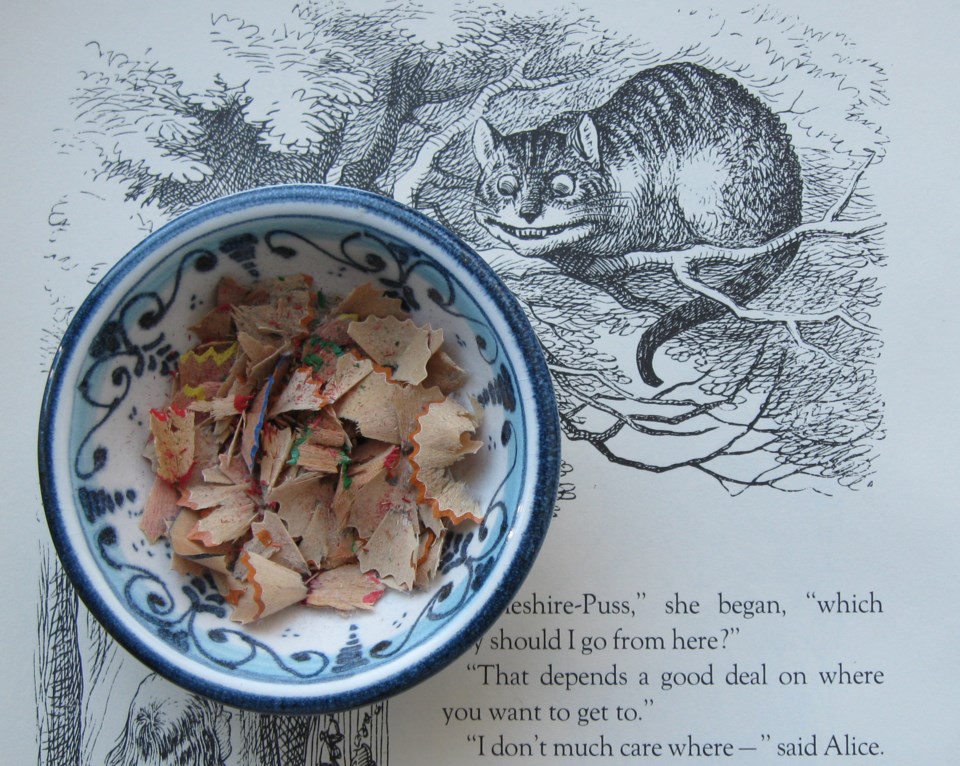The scariest thing I experienced as a small child was watching the 1953 movie “Invaders from Mars” on TV. Years later it still haunted me. For a long time I was terrified to walk over sand, in case I got sucked down to where the invading Martians were hiding. I remember wondering if a class mate in school had had one of those mind-control devices implanted by a Martian, because just like the other human victims in the movie, he had a tell-tale scar at the back of his neck.
Today, the scariest thing for me is the ‘other’ reality, the kind of reality that’s manipulated and tampered with. It seems to be creeping into every nook and cranny of our lives.
Of course, the idea of a fake reality, a kind of second-hand reality, is not exactly new. Do any of you remember when, a very long time ago, you could find cans of fresh BC air for sale at tourist souvenir stores, in town and at the airport? It was meant to be a joke, like a T-shirt with a silly logo or a toy moose that you’d bring back from your travels in Canada. Today, what started out as a lark has become something serious and profitable – as demonstrated by the success of Vitality Air, a company founded in Alberta in 2015. Does this mean that you’re supposed to feel better if you’re living your life in an indirect way? If, instead of breathing fresh air, you breathe the air pumped into a container? Air is all around us, so why should anyone be making a profit by canning it? And think of all the pollution involved in the manufacture of the cans. It’s mind boggling.
Clearly there are people who invent ways of making our experiences a step removed from reality simply because there’s easy money in it for them. They have an idea, regardless of whether it’s useful or not, and they figure out how to realize it using today’s technologies. Then they convince you that you want it, or maybe even need it – thanks to social media, it’s getting easier than ever to market anything – and the money that’s sucked out of your pocket flows into theirs.
Let me draw your attention to just one example of a ‘substitute’ reality – simulated smells. In 1993 Christopher Brosius and Christopher Gable founded the Demeter Fragrance Library, which intended to capture common smells and turn them into cologne. One of their smells, launched 2015, is called Mountain Air, mimicking the air of Alaska – sound familiar? Another fragrance is called Rain. The 1 oz. bottle of cologne spray costs CAD $44.24. I can get it for free by just walking out the door.
Scented candles that will transport you from your actual reality to a different one are also available. Anya Hindmarch has a wide range. One of her candles is named Pencil Shavings. A large one will burn for 90-100 hours. It costs US $195 – that’s just under CAD $250 at the current exchange.
A couple of retired teachers told me they were so fond of the smell of pencil shavings that at the beginning of each school year they’d buy a supply of pencils to sharpen. Staples, I saw recently, sells a pack of 10 pencils for 99 cents. This means you could buy 2,500 pencils for the price of one Anya Hindmarch candle.
Rest assured, I don’t find pencil shavings or candles scary. Instead, what I find really scary is the fact that there are people making lots of money by manufacturing useless and gimmicky products, contributing to environmental pollution, at a time when we’re beset by many real crises, when there are organizations desperate for financial assistance in order to help the people, the animals, the entire natural world, affected by humanity’s never-ending greed and relentless tendency to destroy.
Sabine Eiche is a local writer and art historian with a PhD from Princeton University. She is passionately involved in preserving the environment and protecting nature. Her columns deal with a broad range of topics and often include the history (etymology) of words in order to shed extra light on the subject.



.jpg;w=120;h=80;mode=crop)